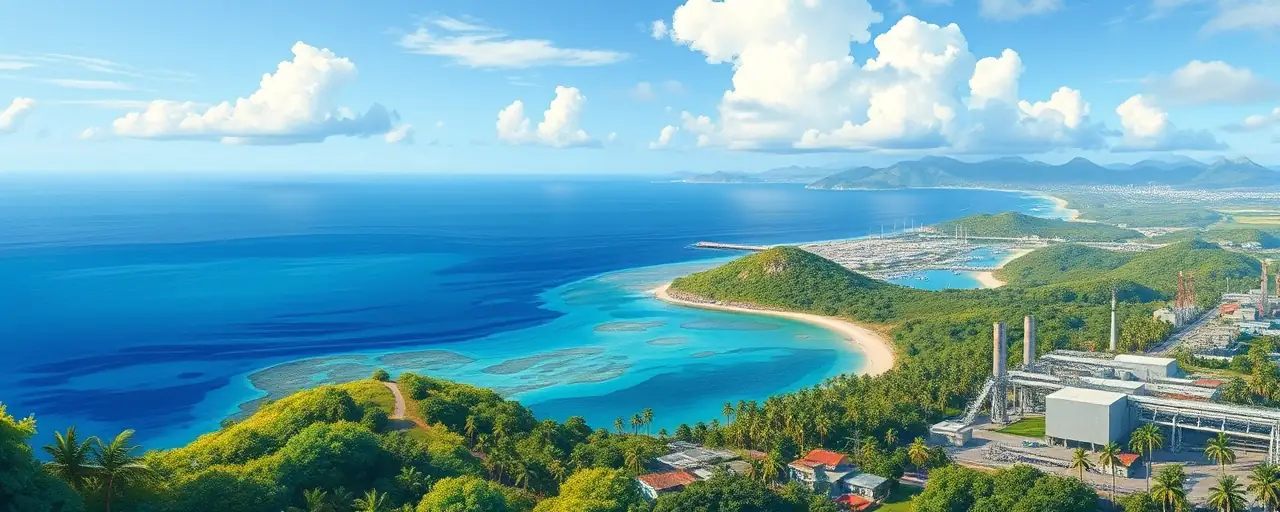A Diplomatic Tightrope
On April 18, 2025, U.S. Secretary of State Marco Rubio dialed Prime Minister Stuart Young of Trinidad and Tobago. Their conversation, warm yet pointed, centered on a thorny issue: how to keep their nations’ energy partnership thriving amid U.S. sanctions on Venezuela. For Trinidad and Tobago, a Caribbean nation tethered to its natural gas exports, these sanctions aren’t just policy—they’re a direct hit to its economic lifeline.
The call underscored a decades-long bond between the U.S. and Trinidad and Tobago, rooted in shared goals of regional stability and economic growth. Yet, the sanctions, tightened to pressure Venezuela’s Maduro government, have tangled Trinidad’s plans to tap cross-border gas fields like Dragon and Manakin-Cocuina. These projects are vital for replenishing the country’s dwindling reserves and powering its liquefied natural gas (LNG) and petrochemical industries.
Rubio and Young didn’t shy away from the tension. They agreed to hunt for solutions that align U.S. goals—curbing Maduro’s influence—without kneecapping Trinidad’s economy. It’s a delicate dance, one that reflects broader questions about how global powers balance geopolitical aims with the needs of smaller allies.
For everyday Trinidadians, this isn’t abstract diplomacy. Gas revenue funds schools, hospitals, and jobs. If the fields stay locked, the ripple effects could hit hard, raising costs and stalling progress. The stakes are real, and both leaders know it.
Sanctions’ Ripple Effect
The U.S. sanctions, ramped up in early 2025, revoked licenses that allowed Trinidad and Tobago to develop gas projects in Venezuelan waters. The Dragon field, expected to pump 200 million cubic feet of gas daily by 2027, was a cornerstone of Trinidad’s energy strategy. Its sudden halt has left the country scrambling, with downstream industries like LNG plants and petrochemical facilities at risk of supply shortages.
Caribbean energy security hangs in the balance. Trinidad and Tobago isn’t just a local player; it’s a regional hub, supplying processed fuels to neighbors like Jamaica and Barbados. The sanctions’ fallout threatens to hike electricity prices across the region, where many nations already grapple with costly energy imports. A proposed 25% U.S. tariff on goods from countries importing Venezuelan oil adds another layer of uncertainty, potentially chilling regional trade.
Voices from the region highlight the human cost. Energy analysts in Port of Spain warn that prolonged disruptions could erode public services, while Caribbean leaders stress the need for stable supplies to maintain economic competitiveness. On the flip side, U.S. policymakers argue the sanctions are essential to weaken Maduro’s grip, citing his regime’s ties to transnational crime and authoritarian tactics.
Trinidad’s government, led by Young, isn’t sitting idle. It’s pushing diplomatic channels and exploring workarounds, like renegotiating licenses or finding alternative gas sources. But these fixes hinge on U.S. flexibility, a tough ask given Washington’s hardline stance on Venezuela.
Trinidad’s Energy Pivot
Trinidad and Tobago has long leaned on its hydrocarbons, ranking among the world’s top 25 gas producers. But with reserves thinning, the government is doubling down on a dual strategy: squeezing value from existing fields while betting big on renewables. Projects like the 92.2 MW Brechin Castle solar plant and a national wind assessment signal a shift toward cleaner energy, with a goal of 30% renewable generation by 2030.
The country’s green hydrogen ambitions are equally bold. By 2065, Trinidad aims to produce 4 million tonnes annually, repurposing its gas infrastructure for ammonia and methanol exports. International partners have praised these efforts, noting Trinidad’s transparency in decarbonization. Yet, the sanctions snag threatens to derail this progress, forcing a rethink of timelines and investments.
Local stakeholders are split. Industry leaders urge faster action to secure gas supplies, warning that delays could scare off foreign investors. Meanwhile, environmental advocates push for a harder pivot to renewables, arguing that reliance on fossil fuels, even as a bridge, risks long-term instability. Both sides agree on one thing: energy security is non-negotiable.
A Broader Security Lens
Energy isn’t the only thread tying the U.S. and Trinidad and Tobago. Security cooperation, from counter-narcotics to disaster response, forms a bedrock of their partnership. The annual Tradewinds exercise, hosted by Trinidad in 2025, brings together 30 nations to tackle maritime threats, cyber risks, and humanitarian crises. It’s a tangible sign of the region’s commitment to collective defense.
The Caribbean’s security landscape is complex. Drug trafficking, organized crime, and natural disasters demand coordinated responses. Platforms like the Caribbean Nations Security Conference and U.S. Southern Command’s support for training and infrastructure have bolstered readiness. For Trinidad, hosting Tradewinds isn’t just logistical—it’s a chance to flex its regional leadership.
Rubio, in his call with Young, reaffirmed U.S. backing for democratic governance and Caribbean stability. This matters in a region where political volatility, as seen in Venezuela, can spill over. But some Caribbean leaders quietly note that U.S. sanctions, while targeting Maduro, risk destabilizing neighbors reliant on Venezuelan energy. It’s a point of friction, rarely aired publicly.
Looking Ahead
The Rubio-Young call was no mere courtesy. It signaled a shared resolve to untangle the sanctions knot without fraying U.S.-Trinidad ties. Both sides are pragmatic, exploring options like limited license extensions or new investment frameworks to keep Trinidad’s energy sector humming. Success hinges on trust and compromise—qualities tested by the broader U.S.-Venezuela standoff.
For Trinidad and Tobago, the path forward is about resilience. Its blend of gas development, renewable innovation, and regional leadership offers a blueprint for navigating global pressures. The Caribbean, often overshadowed by bigger players, has a chance to shape its energy and security future. But it won’t come easy, not with sanctions casting a long shadow.
